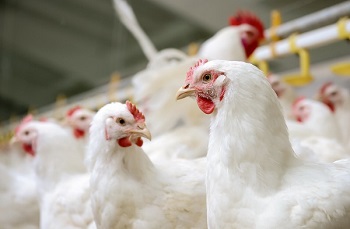
Learn how incorporating nutritional tools into poultry diets can go beyond traditional nutrition and overcome modern obstacles to optimal profitability.
Brand Insights from Novus
The Path to Stronger Footpads
Broilers are grown in a highly controlled environment that has been developed over many years to promote optimal and efficient growth while ensuring animal well-being. One of the most prevalent issues in broiler production is the development of footpad dermatitis. This condition is characterized by the appearance of lesions on the footpads of broilers and can be seen early in the brooding phase and are exacerbated as the bird grows.
Effect of Bis-Chelated Trace Minerals on Woody Breast
It is well understood that the goal of broiler live production teams is to deliver a high-quality, target-weight broiler to the processing plant. Up to the initiation of processing, there are considerable resources; financial, management and time that are committed by the company to accomplish this goal. One of the most tragic situations to occur is the condemnation or downgrading of either whole carcasses or carcass parts in the processing plant. There are a wide variety of causes for this condemnation and downgrading, ranging from field-caused health situations, management or mechanical issues within the plant.
Sustainability in Broiler Production
In poultry production, sustainability has become more than a buzz word. Improvements in genetics and nutritional programs have advanced production efficiency to allow for more sustainable practices. Sustainability is a goal that ensures our industry continually evolves business practices to meet the needs of a growing population with limited resources. At Novus, our goal is to provide the industry with feed additives that help our customers achieve sustainable animal agriculture.
Trace Minerals for Performance
While they constitute a small portion of the overall diet, trace minerals such as zinc (Zn), copper (Cu) and manganese (Mn) play key roles in various metabolic and physiological functions necessary for avian development. Successful breeder operations are measured on their ability to supply high quality chicks. Maternal nutrition is critical to providing nutrients for the egg to support embryo development and progeny performance. This can be achieved by feeding a highly bioavailable source of Zn, Cu and Mn, as these minerals are crucial for both physiological and structural development of the hen and her progeny.

